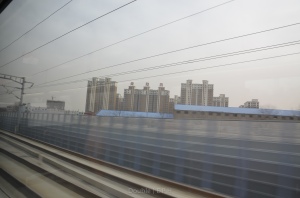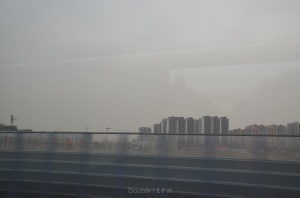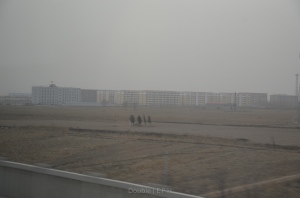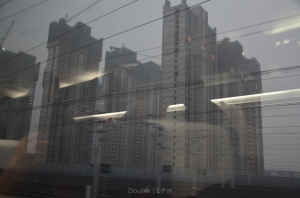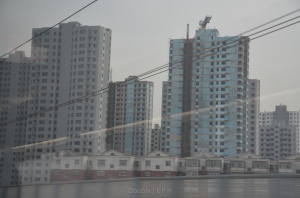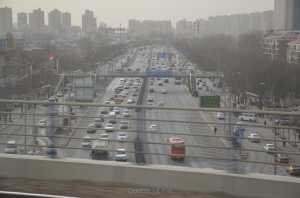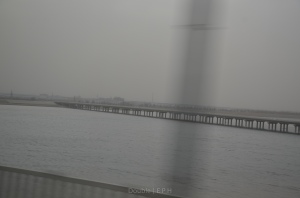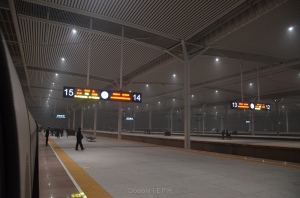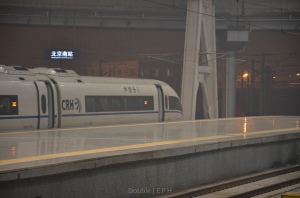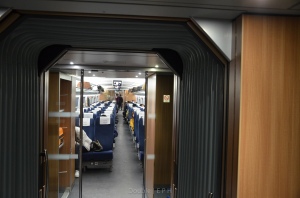Ownership of this blog has its perks. One of such is the ability to change the rules as I see fit. So even though TWOTS is normally an account of a trip to Nigeria, the rules can be broken to take in somewhere else e.g. with Singapore last year.
1. There is no access to Twitter* or Facebook in China. Several other sites are also blocked e.g. Bloomberg for this story they did last year. I quickly discovered that any site that had ‘blog’ in it was also blocked. Any website with ‘blogspot’ in the URL is also blocked. This might be a Google problem as YouTube was also blocked.
Some websites which weren’t themselves blocked but had a blog section e.g. the beyondbrics page of the FT would take forever to open, as if the website was going to Beijing to seek approval before opening. Sometimes I’d see a Facebook or twitter notification come through on my phone but if you then tried to open it, it simply wouldn’t. Instagram is allowed though as is Foursquare (perhaps to help the government monitor people better?)
Incidentally the Chinese economy grew by 7.8% in Q4 2012 while the US economy shrank by 0.1% and the UK by 0.3%. Are these things related? I couldn’t possibly comment on that 🙂
*While they don’t have Twitter, they do have the formidable Weibo, reported to be 500m users strong and is where the Chinese ‘children of anger’ reside. So before Dr. Abati sends a proposal to Mr. President asking him to ban the use of social media in Nigeria as a way of growing our nascent economy….
2. Feeling like a tourist, I had mapped out my journey from the airport to my hotel using this website but I decided to try out the Maglev train going from the airport halfway into town (Longyang). 50 Yuan later, we were on board and the train soon reached its top speed of 431km/hr. How did it feel? Fast! There was a point at which it seemed to hit something like a gap in the tracks – at top speed – and it made a loud noise. That scared me but my fellow passengers didn’t flinch so I relaxed.
At Longyang it was time to join the normal subway and I realized something I hadn’t thought of at all before – there are no black people in Shanghai. So there I was on a Saturday morning on the Shanghai Subway in a packed train. The only black guy anywhere near the place. I don’t mind being black (not like I have a choice) and I am happy to be the only black person anywhere but this was slightly uncomfortable initially. Happily, the same thing in English follows the train announcements in mandarin and the signs also have English versions everywhere. Same for the ticket machines with a prominently placed ‘English’ button on the touchscreen. As such as I was able to go from the airport to my hotel without asking for directions once from anyone. Neat.
3. I booked a mini tour of Shanghai for the evening of the day I arrived before I left London, which included a Chinese acrobats show. It was 90 minutes of awesomeness made even more interesting by the fact that the acrobats made a few mistakes. The things they were doing – like juggling 7 balls at the same time – looked humanly impossible at times and I had to restrain myself from jumping up from my seat to applaud them (only black guy in the room remember?). Sadly we were told not to take photos or record videos to protect the ‘intellectual property’ of the acrobat company. Something I found rather cute in light of recent events.
Anyway the show went really well until a lady came out for her performance, which consisted of some card tricks. I was sitting in the first row only a few feet away from the stage so this compounded my ‘mesmerisation’. I hate stuff that can’t be obviously explained. Needless to say, the lady started off with a deck of cards in her hands and kept on throwing them to the crowd…and throwing them…and throwing them…and throwing them. Yes, the cards didn’t finish even when her hands were empty. She simply ‘summoned’ more cards of different sizes, which did as they were told and promptly appeared in her hands. And then she threw them again. Can any magic aficionado point me in the direction of something that explains this trick? Thank you.
4. Seems to me that a surefire way to ‘hammer’ in China is to set up an optician’s business. Everyone seems to wear glasses and even those who don’t, have it in their pocket or glove compartment especially taxi drivers.
5. Speaking of taxis, it’s now obvious to me that one of the first things to organize in a serious city is the taxi system. Singapore has the best and tightest regulated taxi trade I have seen. The government sets the prices for the taxi drivers and the business is closed to non-Singaporeans. Those who get it are thoroughly vetted and background checked beforehand and in exchange for all this, the government helps them to enforce some kind of monopoly by tightly controlling the amount of licenses it gives out. The result is very very cheap taxis that are as safe as can be.
Dubai also has a very good taxi network – all cabs are metered so need to waste time haggling unnecessary over fares.
If a city has plans to be a serious place open to people who want to come and do business there, then it needs to ensure that people feel safe and comfortable enough to get on a plane and journey from airport to hotel without too many worries. Shanghai cabs are metered and once the cab starts running, there’s an announcement in mandarin followed by an English translation. There are numbers to call in case of an emergency behind the driver’s seat and the starting fare is 14 Yuan for each journey. Again very cheap cabs to move around.
Here’s looking at you Lagos. Let’s sort out our cabs and make them safe and predictable in pricing. Whenever I am coming to Lagos, I only use a cabman that has been vouched for by my close friends and even with that, it’s a heart in mouth journey from the airport to the house for me. What if he suddenly parks somewhere and asks me to surrender everything and jog on?
6. There are some 24 million in people in Shanghai but it definitely doesn’t feel cramped. The roads rise to the occasion in their length and width and you just know if more kilometers of road are suddenly needed, the Chinese will sort it out stat (they spent $45bn just to get the city ready for the 2010 Shanghai World Expo, almost 50% more than Nigeria’s annual budget). These guys have cracked the infrastructure code, no doubt. The whole Pudong New Area was claimed from the sea (what Eko Atlantic wants to be) and is accessed by an underground tunnel road. I went there at night and I was amazed.
It’s understandable why they are proud of their city and fiercely protective of its image – when Mission Impossible 3 (shot in Shanghai) applied for a license to show the film in China in 2006 (only 20 foreign films are allowed to be shown in China every year), the authorities asked the film’s producers to cut out all the shots that showed high-rise buildings with clothes hanging in the open on the balconies. Skyfall too was asked to cut out the scene where James Bond effortlessly killed a Chinese guard when he arrived in Shanghai.
7. I was in Shanghai for an MBA related workshop for the first 3 days and I shared a class with about 20 other people. There was one Singaporean guy (half mandarin, half Malay so he spoke mandarin very well), a Cantonese guy from Hong Kong, A German guy based in Tokyo and married to a Japanese woman and myself as the only ‘non-Chinese’ people in the class. It wasn’t a particularly representative class of Chinese people as all of them had really good jobs (90% of them with American companies and had done a fair bit of travelling); nevertheless I tried to glean a few things from them.
First day of the workshop I arrived quite early to find one Chinese course mate waiting outside the door of the venue. She had forgotten the password we had been sent to let ourselves in so she was on the phone to someone trying to get it. I managed to remember it and I opened the door. It was just two of us there at this point but as soon as the door opened, she bolted inside seemingly to grab the ‘best’ seat in the room (since everyone uses laptops sometimes it makes sense to angle for a seat next to a socket). Now I am in my 10th year in London and I know the town has softened me up but I found this rather hilarious. It occurred to me then that I had also been impatiently pushed out of the way the day before while waiting to climb an escalator out of the subway. Chinese people are perhaps competitive as soon as there’s something to compete for.
Later on, we were discussing about working for the government and working for the private sector and the Canadian lecturer spoke about how only 3rd rate people end up in government in America after the great and the good have gone to the private sector. This same girl then went on a semi-rant about how there ought to be no shame in working for the government and how in China, only the best go into the government. To my surprise, all the other China people in the class let out a loud chorus of ‘nooooo’ when she said that. Like I said earlier, these are all middle class Chinese people working for multinationals so her making that kind of statement was perhaps taken as an affront to them. Nevertheless she wasn’t allowed to finish that point or repeat it.
Chatting with another girl, I was letting out my frustration at how slow infrastructure development can be in the UK due to NIMBYism and all manner of engaged minorities who can block a project they don’t like. I gave an example of how some people had got the government to commit to planting some trees to cover their view of the new HS2 rail line – which wont even be built until 2030 – simply because they didn’t want to see a train passing. Her response was ‘so the government listens to people there?’. In the relentless quest for development, people in Shanghai are now very familiar with the word chai – 湾仔 – what is written on a building when it needs to be razed to make way for something new such as a new road or a skyscraper. The government isn’t in the habit of listening to every last complaint and delaying what it has decided to do in the process.
Having said that, I ran into a British guy at the airport on the way back here who works for a Chinese company (and is looking to do business in Nigeria even) and he was telling me things have greatly improved in how the government compensates people for their land. Now the government might give people 3 flats in a new development in exchange for taking their land. When the block is ready, those people then sell 2 of them and become millionaires in the process.
8. I decided to do another tour of Shanghai on my own so I got in a cab and started off at People’s Square. Then walked to the Bund to look at the Pudong New Area
I had asked for the name of a street where cars aren’t allowed to pass from a coursemate and he helped me practice my pronunciation of it until he was sure a taxi driver wouldn’t take me to the border or some place else. So after leaving the Bund rather later in the night, I confidently told the first taxi driver I saw I was going to Bu Xing Jie. He dropped me off at the beginning of the street and I brought out my camera happily snapping away. By this time I was quite relaxed with the constant stares of people looking at the tall skinny black guy.
As I was strolling down the street, the first guy walked towards me and I was quite scared as the street was somewhat deserted by this time. He smiled and I returned the smile. Then he pulled out a card from his pocket with a rather fetching young Chinese girl on it. ‘You want nice Chinese girl?’ he enquired. I laughed and shook my head and continued walking. Of course what else was a black guy doing there if not to look for Chinese girls to sleep with? Totally understandable.
I walked further down and another lady came up to me. This one had about 3 cards and her opening gambit was ‘You want sex and massage?’. I laughed, shook my head and said no. She seemed offended and frowned before retorting ‘You no like sex?’. I was minded to tell her that it was the massage I didn’t want and I was entirely up for having sex with a Chinese woman in Shanghai as that was what brought me there in the first place. But I decided not to push my luck even after she offered to send the girls to my hotel room if I preferred it that way. 2 more people came with the same offer and one of them did it right in front of a statuesque looking policeman. Great to see the universal law of policemen and prostitutes holding up in Shanghai too.
Same thing happened on my last night in Shanghai and this time the guy wouldn’t let me be. So I took his card and promised to call him just so he could stop following me around. The wording on it is hilarious (see photos)
9. I had 3 days to kill so it made sense to take the fast train up to Beijing to check out another Chinese city. Beijing is ‘proper’ China compared to Shanghai’s westernized look and feel.
I kept expecting to get scammed and when it hadn’t happened by the 5th day, I became ‘concerned’. My hotel in Beijing was in the center of town so I decided to go check out Tian’anmen Square (when Chinese people in China Google it, they get images of a park with lots of families playing and having fun. Try googling it and search on images to see what it shows you).
After seeing the square and along with the ubiquitous presence of members of the People’s Liberation Army, I crossed over the road in the direction of Chairman Mao’s larger than life face into the Forbidden City and its temples. In both places there was a huge crowd of people (on a Wednesday morning) just strolling around with their families and having fun in the sunshine. I had expected to see plenty of tourists but 99.9% of the tourists there were Chinese people themselves. Only black man again…sticking out like a sore thumb. After walking round I saw a guy with a camera that looked like mine and asked him to take a photo of me if it wasn’t too much trouble – this exchange was completed without words because by this time I had realized that mandarin is a ‘sound’ language. So even if you are speaking English and it’s too fast, you might unknowingly say something else entirely (the day before, I was taken on a merry go round cab journey after I had told the cabman that I was going to the Shanghai Centre. Perhaps ‘Centre’ sounds like the Chinese word for ‘railway station’ because that’s where he took me. Cue frustration as the guy didn’t speak or hear a word of English). Also when I wanted a guy to write something for me in Chinese characters, I wrote it down but he asked me to pronounce it vowel by vowel so he could know what to write.
Anyway, after getting this guy to take a photo of me, I thanked him and started to walk off when a rather innocent looking Chinese lady walked up to me to say hi. She spoke passable English and I think I was too relieved to find a Chinese person to chat to. She said she was from Wuhan and only came up to Beijing for sightseeing. I said I had wanted to go to Shenzhen, which is further along on the same rail corridor, and she was surprised I knew a bit of Chinese geography. I then talked about how impressive it is that there seems to be so much internal tourism in China much like the way Americans do which makes people poke fun at them at being geographically ignorant (as an aside, all the Chinese people in my class said they are always amazed at how Americans and the British seem to know so much more of their own country than they do. Nigerians aren’t the only ones who feel this way it seems).
I told the lady I was tired as I walked round the temples already and she said we should stroll down towards the station. We kept talking and she told me she was a teacher down in Wuhan and I told her about London. We talked about the Chinese government officials who made the rounds on Weibo recently for owning 20 Rolex wristwatches and so on. So she asked me if I wanted to grab a drink in a bar near where we were standing. Like I said she seemed completely harmless and there were policemen all over in a very busy area. So I said why not and we dived inside one small restaurant looking tearoom. We entered and she asked for a room and we were led into a small room with a table and teacups. Alarm bells started ringing in my head as the waitress shut the door behind her as she left. Anyway gist continued flowing and they brought a big pot of tea. I asked for coke thinking they would bring it in a can and I would open it myself. To my disappointment the coke was brought in a glass. Awkward. What if there was something to make me sleep in it while they took everything I had and left me only my boxers? My Mum is a Deaconess you see and I grew up as a church boy. So I began to ‘plead the blood’ over the drink silently. She was drinking the tea and enjoying it and she poured me a cup, which I didn’t touch. Gist continued and she showed me photos of her cute looking nephew on her phone. I wondered if she was some kind of prostitute but her nerdy looks made me rule that out. She drank more tea and I drank some more coke.
After about 45 minutes alone in that room and she on her 5th or 6th cup of tea, I told her I was ready to leave as I still had places to go. So she summoned the waiter and even told me how to call a waiter and ask for the bill in mandarin. When the bill came, I looked at it and smiled. There was the scam, finally. It was for 980 Yuan. The ‘tea’ was 800 Yuan and the ‘private room’ was 100 Yuan. The coke I drank was 30 Yuan and some biscuits, which she had nibbled on and I didn’t touch, were 50 Yuan. I could see her face starting to change with her not being sure if I was going to fall for the scam or not. I took this as my cue to take the piss. So I pointed in between the 9 and 8 on the bill and asked the waiter why she hadn’t put the dot there. I then pulled out a 10 Yuan note from my pocket and began to confidently wave it around. There was a look of horror on her face and one of irritation on the face of the waiter. She then began to explain to me that it was actually 980 Yuan and not 9.80 Yuan (by the way Beijing is very cheap so 9.80 Yuan wasn’t totally beyond reason for tea and coke. A train journey for instance costs 2 Yuan). I then started complaining about not having anywhere near that kind of money as I only drank coke anyway. I pointed to the 30 Yuan on the bill for my coke and continued to protest. Evidently this had happened to her before and she quickly opened her bag and brought out something like 300 Yuan and her UnionPay debit card and handed it to the waiter. She then asked me how much I could pay and I pulled out a 100 Yuan note and gave it to her. This moved us into the negotiation phase and a back and forth began with her pleading that there wasn’t enough money on her card to cover it all. ‘What was in the tea you drank?’ I kept asking her and she didn’t answer. In the end I brought out another 50 Yuan, handed it to her and headed out of the place.
I walked like 50 yards before looking back and seeing her, she smiled and I smiled back. She waved and I waved back and then she headed back in the direction we originally came from…to look for her next victim. What tripped me the most in all this was how disarming she was. I would have thought she didn’t have a single devious bone in her body. Of course I still overpaid and she probably made a profit, which I suppose was the whole point. In my defense, I did it for you dear reader…so that whenever you are in Beijing, you wont fall for this trick again.
10. ‘The only thing real in that market are the people. Everything else is fake’. This was how my friend described Silk Street Market in Beijing to me before I headed out to China. It’s a popular tourist attraction these days and the Chinese authorities continue to pay lip service to shutting it down.
Look, there’s a KFC downstairs in the 6-storey complex. It’s a fake KFC. How do I know? Well before I entered this one I had already visited 3 different KFCs in China, as I didn’t want to go to a Chinese restaurant and mistakenly order cat or mouse barbecue. So I stuck to what I was certain about. As soon as I entered this ‘KFC’ I knew it was fake. There’s an Apple store inside the complex. Yep, fake. Going through this complex floor-by-floor is to behold the awesome wonder that is Chinese enterprise first hand. It’s well organized too – basement is for leather goods, 3rd floor for tailored clothes, 5th floor for jewelers etc.
So you go in a store and see a bag you like. You ask how much and the store person brings out a calculator and types in say 2000 Yuan. She then hands you the calculator and asks you to enter your price. So you enter 150 Yuan. She pretends to get angry and asks if that’s dollars or Chinese money. You say yes, Chinese money. She then asks you for your ‘no kidding price’. After much haggling with you threatening to walk away, you agree on a price of say 220 Yuan. You take the bag and move on. If you come back in 5 minutes to the same shop and pick up the same bag, the store person will do the exact same thing i.e. start from 2000 Yuan. They do this to wear you down so that perhaps this time you might agree to pay 250 Yuan instead.
But I think something interesting is happening in these stores that reflect China’s growing ambitions perhaps. I needed to buy a leather traveling bag as I only took a small one with me. Now of course I was ‘spoilt for choice’ from Louis Vuitton to Burberry to whatever. Aside from the fact that I am not a designer person to the point where I would carry around an LV traveling bag, I also am unable to tell the difference between an original and a copy. They all looked good to me. Anyway I noticed one particular design in all the shops with some kind of horse design on it. I had no idea who the designer was so I asked and the lady in the shop said ‘no this one not copy, original Chinese design’. Every shop had this ‘designer’ in stock in all kinds of products from wallets to handbags to travel suitcases. And they were really good looking items. I am talking about stuff that you can slap a brand name on it and people will happily pay a premium for it. But here were the Chinese, confident enough to sell it under their own brand name and place it on the shelf right next to the fake Louis Vuittons and Pradas. The Chinese are not coming, they have arrived. I didn’t hesitate before buying the bag. They are still taking their inspiration from popular brands but it wont be long anymore.
There are tailors who will take your measurement and produce a suit for you in less than 24hours. There are fake iPads and fake converse shoes. It is impossible to tell the difference with a casual glance. Chinese labor is well and truly skilled because it takes some talent to copy stuff in the way these guys do.
11. Rushing back to my hotel in Beijing to grab my bags and catch the train back to Shanghai, I saw a black guy! leaving the hotel. Couldn’t stop to talk as I was in a hurry. I got to Beijing South Railway Station and it was so packed I could only get a train for 2 hours later. But then I saw the guy again and instinctively went over to talk to him. Turned out to be a young American kid who decided to leave Washington DC and come try out his luck in Shanghai. He works in consulting and feels the future is in Asia. Said he felt he would learn the language faster if he just came out to China and stayed there while applying for jobs as well.
Talking about how the job market works there, he said the hardest part is getting an interview because 99% of CVs out there are fake with people claiming to be able to do things they can’t. So getting an interview is as good as getting the job as it means the employer has applied the usual discount and you still passed. He seemed like a really good kid and we exchanged numbers. I thought it was pretty cool of him to leave America and come try his luck in an unfamiliar country.
Almost everything in China needs to be discounted in this manner. You can’t just take anything at face value it seems. Singaporean coursemate was telling me about how so many Chinese companies were coming to list on the Singapore exchange at one point and to hide the fact that say, 2 of the 4 people on the board were in fact brothers, they’d list their names to investors as Mr. Chang (Mandarin) and Mr. Cheung (Cantonese). Obviously the average Chinese person wont fall for such a trick so it seems a lot of these scams are aimed at gullible foreigners. I was mentally discounting everything like this as I went along – for example wherever I saw ‘massage parlor’; I immediately took it to mean whorehouse or something of the sort. Read this story as another example. Chutzpah I tell you.
————————————————————————————————-
It’s impossible to document everything in one post and for this reason I have deliberately left out anything to do with infrastructure in this one – I will do that in a second post as I think it merits a discussion on its own. I apologize for the length of this post.
A lot of things become somewhat clearer after visiting China. Why does the Communist Party for instance try so much ‘thought control’? Well there are 1 billion Chinese and the thought of them getting angry must be a truly frightening thing. Walking round Tian’anmen Square and seeing PLA soldiers everywhere and all the propaganda all over the place confirmed this – Chinese people are constantly being reminded how great their country is and how gloriously the Communist Party is running it in general and the Politburo Standing Committee in particular. It is essentially self-preservation.
If you are reading this and you’ve mulling over going to China, take this as your cue – book your ticket and go. Don’t waste any more time, go see the country for yourself. It is something to behold and experience, as I will try to describe in my next post.
As the guy I met at the airport said to me ‘this is your first time? Don’t worry, you will definitely be back’
FF
You can find my photos here on Facebook

